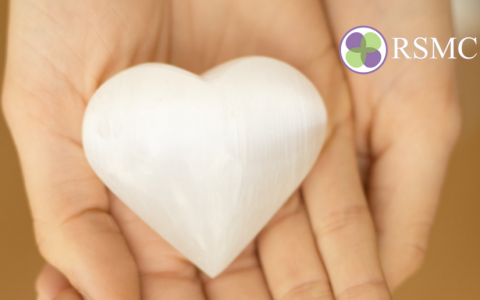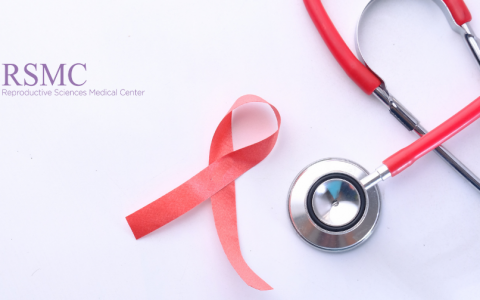Essential Knowledge for Egg Freezing: What You Need to Know!

Pre-Freezing Examinations
Before deciding to proceed with egg freezing, women need to undergo a series of essential tests to assess their ovarian function and overall fertility. The results of these tests will help to formulate the optimal egg freezing plan.
First, the Anti-Müllerian Hormone (AMH) test is indispensable. The AMH level indicates the number of eggs in reserve and is a crucial indicator of ovarian function and fertility. A normal AMH range is between 2 and 5; a higher value might suggest polycystic ovary syndrome (PCOS), while a lower value could indicate declining ovarian function, possibly due to premature ovarian insufficiency.
Baseline hormone tests are also crucial. These tests measure levels of hormones such as Follicle-Stimulating Hormone (FSH), Luteinizing Hormone (LH), Estrogen (E2), and Progesterone (P4). These hormone levels help doctors understand a woman’s ovulation cycle and ovarian response, allowing them to develop a personalized egg freezing plan. Additionally, ultrasound examinations provide detailed images of the uterus and ovaries, aiding in the assessment of the number and size of ovarian follicles, as well as the thickness and shape of the uterine lining. Finally, hysteroscopy is a minimally invasive procedure used to examine the inside of the uterus for issues such as endometrial polyps, fibroids, or endometriosis, which could affect the chances of pregnancy. Therefore, undergoing a hysteroscopy before egg freezing is essential.
Egg Freezing Procedures and Regulations in Singapore
Egg freezing is a fertility preservation technique where a woman's eggs are retrieved during her peak reproductive years, frozen, and stored for future use. The process includes initial assessment, ovulation induction, egg retrieval surgery, and egg freezing.
During the initial assessment phase, women undergo various tests and evaluations to determine if their ovarian function and overall health are suitable for egg freezing. In the ovulation induction phase, ovulation-stimulating medications are used to prompt multiple follicles to mature simultaneously. Once the follicles reach appropriate maturity, an egg retrieval surgery is scheduled. This minimally invasive procedure is performed under anesthesia, using a needle guided by transvaginal ultrasound to extract eggs from the ovaries. The retrieved eggs are immediately frozen using modern vitrification techniques, which rapidly cool the eggs to extremely low temperatures, preventing ice crystal formation and preserving the eggs' cellular structure and function.
On July 1, 2023, the Singaporean government adjusted its egg freezing policy, extending the age limit from 21-35 to 21-37 years. Single women are also allowed to freeze their eggs in Singapore, but they must be married to use the frozen eggs for in vitro fertilization (IVF) treatments in the future. Since the transportation of eggs is currently not permitted in Singapore, individuals concerned about the legal and marital restrictions may consider freezing their eggs at the RSMC Medical Center in the United States, especially if they plan to undergo single IVF treatments or same-sex couples considering sperm donor IVF treatments.
Post-Egg Retrieval Care and Common Concerns
After egg retrieval, women may experience temporary menstrual irregularities due to the effects of ovulation-inducing medications, such as early periods, reduced blood flow, or even missed periods. These changes typically normalize within 1 to 2 months after the treatment or cessation of medication. Therefore, there's no need to overly worry if menstrual irregularities occur; they are usually transient.
The ovulation-inducing medications used during egg retrieval can affect the thickness of the uterine lining, potentially leading to reduced menstrual flow. Mild discomforts like spotting, abdominal pain, nausea, or dizziness are normal and can typically be alleviated with rest. However, severe abdominal pain or heavy bleeding should prompt immediate medical attention.
Regarding dietary care post-retrieval, it's advisable to avoid alcohol, spicy foods, and sesame oil, which can irritate the body and ovaries. Instead, focus on replenishing proteins and vitamins for balanced nutrition to aid in body repair. Maintain regular sleep patterns, avoid strenuous exercise, maintain balanced nutrition, and increase fluid and protein intake to aid in the recovery of bodily functions. Some patients may experience mild bloating, which usually resolves on its own after menstruation.
Ascites, characterized by ovarian hyperstimulation syndrome (OHSS), include symptoms like ovarian swelling, ascites, and increased waist circumference. Severe cases may involve coughing, pulmonary edema, and decreased urine output. While mild bleeding post-retrieval is normal, severe abdominal pain or excessive bleeding requires prompt medical attention.
Recommended for RSMC Reproductive Sciences Medical Center
Why choose to freeze your eggs in the USA? In the USA, egg freezing not only boasts the world's highest IVF success rates but also offers the most inclusive fertility policies, allowing both single and same-sex individuals to pursue IVF. Choosing to freeze your eggs in the USA provides peace of mind, allowing you to focus on advancing your career and pursuing your passions while preserving future fertility options. If you find a suitable partner in the future, you can use his sperm; alternatively, single parents or same-sex couples can create embryos using donor sperm, either carrying the pregnancy themselves or opting for a surrogate to bring the next generation into the world. RSMC Fertility Center offers extensive experience and high success rates, making it your best choice for egg freezing. Contact us via Line / WeChat: rsmctw, WhatsApp: +1 858-342-6046, and we will be happy to assist you.

DR. DAVID HARARI | DR. DAVID HARARI
Director, RSMC San Diego Branch
Dr. David Harari earned his MD from the Medical College of Georgia and completed his internship at Georgia Medical College. He then finished his residency at Mercy Hospital Medical Center, accumulating over 30 years of clinical experience. He currently serves as the President of the San Diego Obstetrics and Gynecology Society, which boasts over 400 professional OB-GYN physician members.
Dr. Harari respects each patient's personal wishes throughout the treatment process and provides them with the most professional treatment plans. He works collaboratively with patients to help them achieve their goals. He believes in the importance of thorough communication and understanding between doctor and patient and is eager to share his past medical experiences and offer the most professional medical advice.
Other
-
2024/04/08eggfreezing
Egg Freezing Cheat Sheet! Things You Need to Know Before Freezing Your Eggs
-
2022/01/25eggfreezing
Is there an Age Limit on Egg Freezing ? Two Common Questions about Egg Freezing
-
2023/03/23eggfreezing
Egg Freezing in Singapore (2024): How Does it Work, Process, Cost - RSMC Singapore



